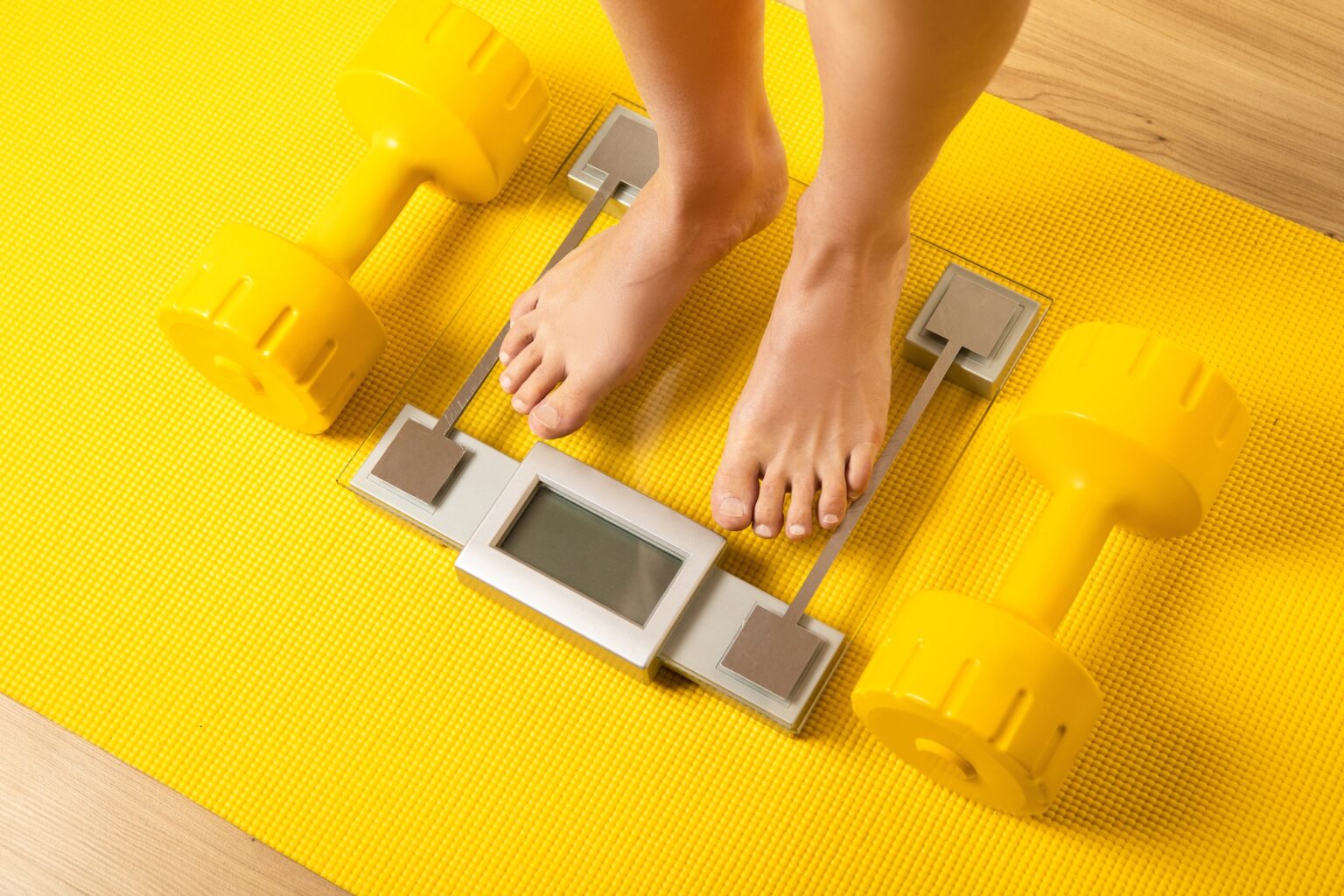If you’ve been struggling with weight loss despite trying low-carb or keto diets, tracking calories, exercising, and lifting weights, you’re not alone. Many people face similar frustrations when their tried-and-true methods stop producing results. It’s important to remember that your body is dynamic, and factors such as age, hormones, gut health, stress, and metabolism can significantly impact how it responds to diet and exercise.
Understanding Why Low-Carb Diets May Stop Working
Low-carb and keto diets can be effective for weight loss because they reduce insulin levels, encourage fat burning, and minimize cravings. However, over time, your body may adapt, and several factors could contribute to stalled progress:
Metabolic Adaptation
When you’ve been dieting for an extended period, your metabolism may slow down to conserve energy. This is a natural response to caloric restriction, where your body becomes more efficient at using fewer calories. This process, known as metabolic adaptation, can make further weight loss difficult.
Hormonal Imbalances
Hormones play a crucial role in weight management. Conditions like thyroid dysfunction, insulin resistance, or hormonal imbalances related to stress (cortisol) and reproductive hormones (e.g., estrogen and progesterone) can hinder fat loss. Low-carb diets may exacerbate hormonal imbalances in some individuals, particularly women.
Gut Health and Digestive Issues
Experiencing gas pains when avoiding carbs could point to gut microbiome imbalances. Low-carb diets can sometimes reduce the diversity of gut bacteria, leading to digestive discomfort. When reintroducing carbs, rapid weight gain might occur due to glycogen storage, water retention, or gut bacteria shifts.
Stress and Sleep Quality
Chronic stress and poor sleep can increase cortisol levels, which promote fat storage, especially around the midsection. High stress also interferes with hunger-regulating hormones, making it harder to stay on track.
Why Carbs Are Not Your Enemy
It’s tempting to blame carbs when you experience weight gain after eating foods like sweet potatoes or rice. However, the relationship between carbs and weight gain is more nuanced than it seems.
Glycogen and Water Retention
Carbs are stored in your muscles and liver as glycogen, and for every gram of glycogen stored, your body retains 3-4 grams of water. This means eating carbs can lead to temporary weight gain from water retention, not fat gain. This is normal and not indicative of long-term weight gain.
Carbs and Hormonal Balance
Healthy carbs like sweet potatoes, quinoa, and fruits can support hormonal balance, particularly if your body is under stress. Carbs help regulate cortisol levels and support the production of serotonin, which aids sleep and mood.
Fuel for Performance
If you’re lifting weights or engaging in other high-intensity exercises, carbs are essential for energy. Restricting carbs too much can lead to fatigue, decreased performance, and slower recovery.
Why Calories In vs. Calories Out Might Not Tell the Whole Story
The traditional “calories in, calories out” model oversimplifies weight loss. While calorie balance matters, other factors can influence how your body processes and utilizes energy:
Hormonal Influence
Hormones like insulin, ghrelin, leptin, and thyroid hormones affect hunger, metabolism, and fat storage. Imbalances can make it harder to achieve a calorie deficit, even if you’re tracking meticulously.
Thermic Effect of Food
Not all calories are equal. Protein has a higher thermic effect than carbs and fats, meaning your body uses more energy to digest it. Eating a diet rich in protein can boost your metabolism slightly.
Non-Exercise Activity Thermogenesis (NEAT)
Small movements throughout the day, such as fidgeting or walking, can significantly impact calorie burn. If your overall activity levels are low, even regular workouts might not offset the calories you consume.
Gut Microbiome
Your gut bacteria influence how you digest and absorb nutrients. An imbalance in your microbiome could reduce your ability to metabolize food effectively, impacting weight loss.
Strategies to Break Through Plateaus
If you feel stuck, consider these strategies to reset your metabolism, support your body, and achieve sustainable fat loss:
1. Incorporate a Reverse Diet
After prolonged dieting, reverse dieting can help restore your metabolism. Gradually increase your calorie intake over weeks or months to allow your body to adapt to a higher energy intake without gaining fat. This can set the stage for future fat loss.
2. Cycle Carbs Strategically
Instead of completely avoiding carbs, try carb cycling. Incorporate higher-carb days around your workouts to fuel performance and recovery, while keeping other days lower in carbs. This can help balance hormones and prevent plateaus.
3. Focus on Nutrient Timing
Eating carbs earlier in the day or around workouts can optimize energy use and minimize fat storage. Prioritize protein-rich meals to support muscle repair and reduce hunger.
4. Diversify Your Diet
Introduce a variety of whole foods to support gut health. Include fiber-rich foods, fermented foods like yogurt and kimchi, and prebiotic foods like garlic and onions. This can improve digestion and reduce gas pains.
5. Manage Stress and Improve Sleep
Prioritize stress reduction through mindfulness, yoga, or deep breathing exercises. Aim for 7-9 hours of quality sleep per night to regulate cortisol levels and support recovery.
6. Adjust Exercise Intensity
If you’re lifting weights and exercising regularly but not seeing results, consider varying your routine. Incorporate high-intensity interval training (HIIT), focus on progressive overload in strength training, or add more low-intensity activity like walking.
7. Monitor Progress Without Obsessing Over the Scale
Weight fluctuations are normal. Focus on other indicators of progress, such as energy levels, strength gains, or how your clothes fit. Regularly measure body composition (e.g., fat vs. muscle) rather than relying solely on weight.
Reintroducing Carbs Without Weight Gain
If you’ve avoided carbs for a long time, reintroducing them gradually can help minimize discomfort and water weight fluctuations:
- Start Slowly: Begin with small portions of carbs like sweet potatoes, quinoa, or fruits. Monitor how your body responds and adjust as needed.
- Pair Carbs with Protein and Fat: Combining carbs with protein and healthy fats can stabilize blood sugar levels and prevent overeating.
- Prioritize Low-GI Carbs: Low-glycemic index carbs release energy more slowly, reducing the likelihood of spikes in blood sugar. Examples include oats, legumes, and whole grains.
When to Seek Professional Help
If nothing seems to work, it’s worth consulting a healthcare professional to rule out underlying conditions that could be hindering your progress:
- Check Thyroid Function: Hypothyroidism can slow metabolism and cause weight gain.
- Assess for Insulin Resistance: This condition can make it harder for your body to process carbs effectively.
- Evaluate Gut Health: Chronic bloating, gas, or digestive discomfort could indicate gut issues that need addressing.
- Consult a Dietitian or Nutritionist: A professional can help you develop a personalized plan based on your unique needs and goals.
Finally, consider shifting your focus from weight loss to overall health and well-being. When you prioritize nourishing your body, improving strength, and reducing stress, fat loss often follows naturally as a byproduct.
Shifting Your Mindset for Long-Term Success
Celebrate Small Wins
Progress doesn’t always show up on the scale. Celebrate non-scale victories like increased energy, better digestion, or improved fitness.
Adopt a Flexible Approach
Rigid dieting can lead to frustration and burnout. Allow yourself flexibility to enjoy foods you love in moderation without guilt.
Be Patient
Sustainable weight loss takes time. Stay consistent with healthy habits, and remember that your body’s needs may change over time.
Persistent weight loss struggles can feel discouraging, but they’re not insurmountable. By understanding the factors at play—like metabolic adaptation, hormonal imbalances, and gut health—you can adjust your approach to better support your body. Incorporating strategies like reverse dieting, carb cycling, stress management, and diversified nutrition can help you break through plateaus and achieve your goals sustainably. Above all, prioritize your overall health and well-being, and seek professional guidance if needed to ensure you’re on the right path.









